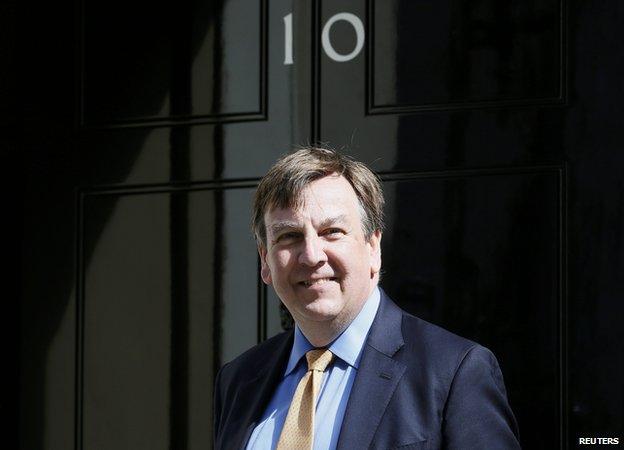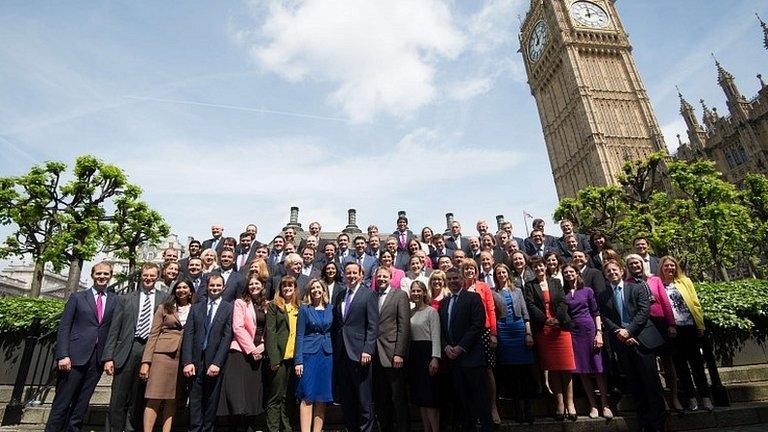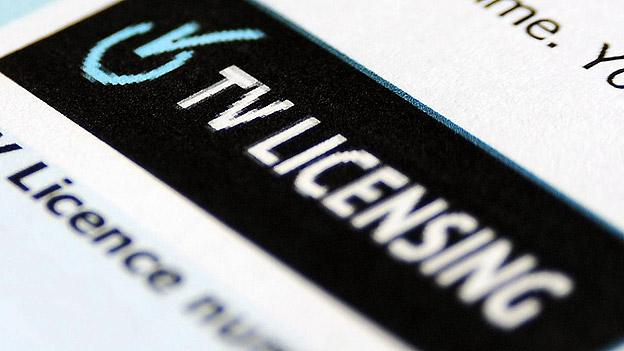John Whittingdale becomes UK culture secretary
- Published

Mr Whittingdale has said the TV licence is 'becoming harder and harder to justify'
John Whittingdale is to take over from Sajid Javid as UK culture secretary, Prime Minister David Cameron has said.
Mr Whittingdale has been chair of the House of Commons Culture, Media and Sport select committee for a decade.
One of his first duties will be to oversee negotiations for the BBC's charter renewal.
He has described the TV licence as "worse than a poll tax", although he has said it is likely to survive until at least the 2020s.
He will also face the prospect of cuts to his department - the Department for Culture, Media and Sport (DCMS) - as the new government seeks to eliminate the national budget deficit.
And press regulation will be on his agenda. He has previously argued against statutory regulation of the press and said the Leveson Inquiry into media ethics "strayed" far beyond its remit.

Analysis: Media correspondent David Sillito
When it comes to understanding the brief, you would be hard pressed to find anyone better.
Previous appointments have suggested the department was seen as a post to test out rising stars to see if they were up to running one of the big government departments. John Whittingdale's appointment is different. He is there to do a specific job - decide the future of the BBC.
He is no fan of the licence fee, but has said he accepts it will probably survive for the next 10 years.
And secondly, almost forgotten now - the issue of press regulation lurks. His summoning of Rupert Murdoch to the culture committee was one of the key moments in the hacking scandal. But anyone waiting for further action to enforce a "Leveson-compliant" system of press regulation will probably have to wait a good while longer.

Figures from the media and arts worlds have been reacting to his appointment on Twitter:
The Spectator associate editor Toby Young wrote, external: "Very pleased to see John Whittingdale as new culture secretary. Staunch defender of press freedom."
Daily Mirror associate editor Kevin Maguire wrote, external: "I oppose statutory regulation of newspapers but John Whittingdale as culture secretary is payback time for Tory press barons."
Daily Mail political editor James Chapman wrote, external: "John Whittingdale has been appointed culture secretary. That sound you can hear is the panic alarm at the BBC."
Cultural PR guru Mark Borkowski wrote, external: "Rather alarming news that John Whittingdale has been appointed culture secretary. Not a good day for the arts."

The BBC's royal charter determines the level of the licence fee, currently £145.50, and the other terms under which the corporation operates. The current charter will run out at the end of 2016.
As culture secretary, Mr Whittingdale will lead the government's negotiations with the BBC over its renewal.
In February, Mr Whittingdale concluded that the TV licence is "becoming harder and harder to justify" given changes to technology.
As the culture select committee published a report into the future of the BBC, he said there appeared to be "no realistic alternative to the licence fee" in the short term, but that the BBC must prepare for the possibility of a change in the 2020s.
Subscription suggestion
It could be replaced by a compulsory levy on all households, or be reduced, with some BBC services only available by subscription, the report suggested.
In October, he said the licence fee was "actually worse than a poll tax because under the poll tax, if you were on a very low income you would get a considerable subsidy", according to The Daily Telegraph, external.
A BBC spokesperson said: "We're looking forward to working with the new secretary of state."
Last November, Mr Whittingdale's committee also published a report into the way Arts Council England funds cultural organisations.
It concluded that there was a "clear funding imbalance" in favour of the capital, and urged Arts Council England to "restore some balance" across the country.
Arts Council England is funded by the DCMS. However, many in the arts world are braced for further funding reductions as the government seeks to eliminate the budget deficit without raising VAT, income tax or National Insurance.
As chair of the select committee, Mr Whittingdale also oversaw recent inquiries into the promotion of tourism in the UK, society lotteries and opportunities for women in sport.
- Published11 May 2015

- Published26 February 2015

- Published5 November 2014
